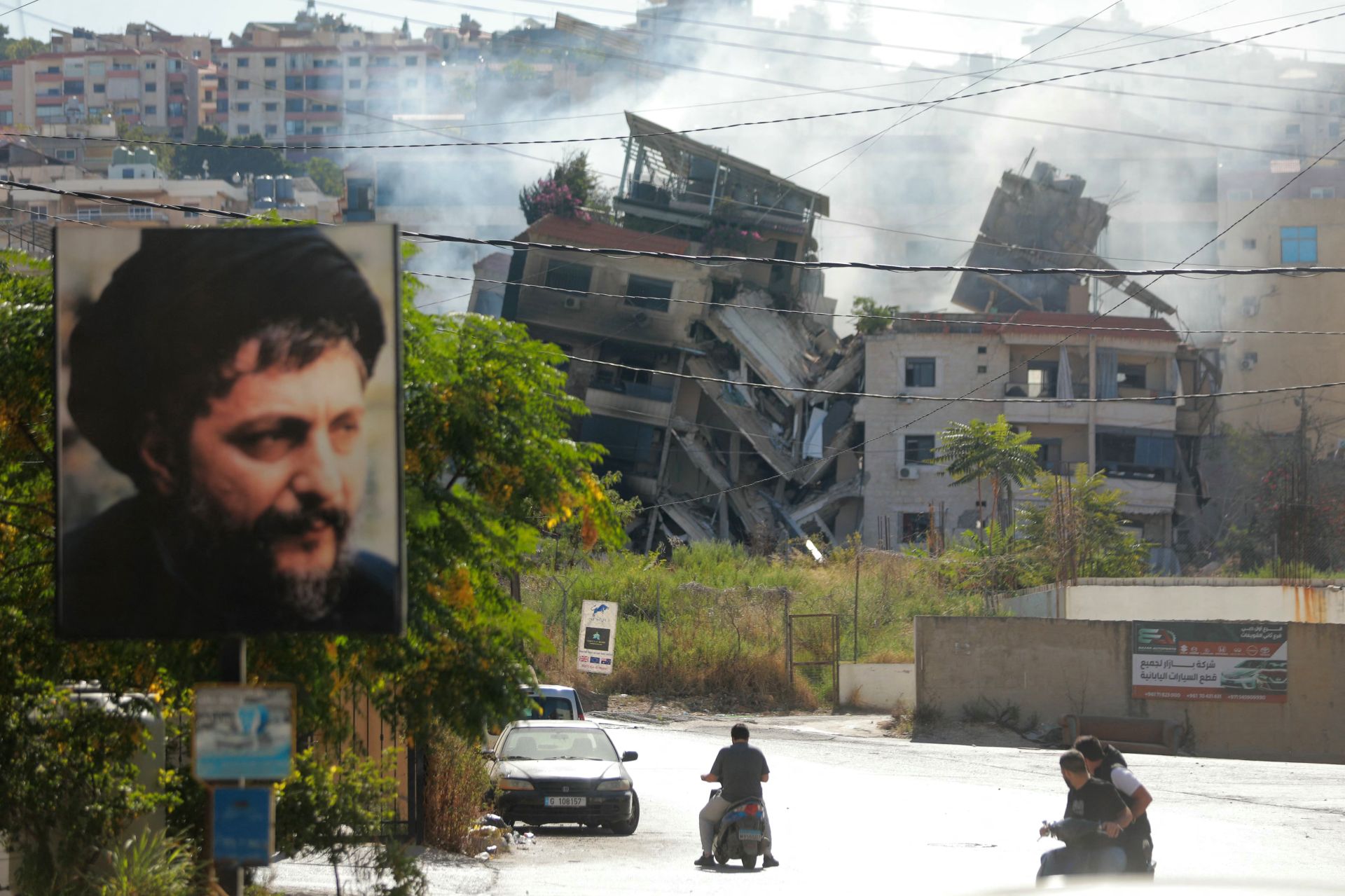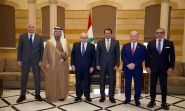
Repeated Israeli strikes on Iran-backed Hezbollah have trapped Lebanon between Washington and its allies, who seek to impose a new order, and Tehran, which is resisting, experts say.
"This is a standoff between Iran on one side, and the U.S. and Israel on the other," says Michael Young from the Carnegie Middle East Center.
"The Israelis and Americans are trying to use military force to shift the balance of power in Lebanon in their favor. And there is no sign that the Iranians will accept this without a fight", he stated.
Hezbollah opened a front with Israel a year ago to support Palestinian Hamas in its war against Israel in Gaza, while trying to contain the level of violence.
But the clashes escalated into open war in September, and now the future of the powerful group, armed and financed by Iran, is at stake.
"Balance of Power"
On October 11, U.S. Secretary of State Antony Blinken said that the Lebanese people "have a great interest in ensuring that their state takes responsibility for the country".
A few days earlier, Israeli Prime Minister Benjamin Netanyahu called on the Lebanese to "save" their country by freeing it "from Hezbollah," warning that if they didn’t, Lebanon would face the same fate as Gaza.
"The U.S. would certainly like to see Hezbollah weakened, perhaps even disarmed, but they fear that Israel might go too far in its military campaign", explains Kim Ghattas, author of Black Wave, a reference book on the Middle East.
While Lebanese caretaker Prime Minister Najib Mikati had previously avoided criticizing Tehran, he, for the first time on Friday, condemned Iran’s "blatant interference" and summoned its chargé d'affaires.
Iran's foreign minister Abbas Araghchi and later the speaker of the Iranian parliament, Mohammad-Bagher Ghalibaf, visited Beirut earlier in October to express their support for Hezbollah.
Iran’s insistence on linking any ceasefire in Lebanon to a halt in fighting in Gaza has irritated Beirut, according to an official who requested anonymity.
"Iran wants to preserve what remains of its assets in Lebanon and ensure the survival of the regime, explains Kim Ghattas. It must find a balance: continue supporting Hezbollah while signaling readiness for diplomacy."
Hezbollah announced on Thursday that it had entered a "phase of escalation" with Israel, as Iran braces for Israel’s retaliation following its missile attack on October 1.
"Lebanon has paid and continues to pay a high price for foreign conflicts", lamented Prime Minister Mikati on Friday, calling for a ceasefire.
"Lessons from the Past"
Heading a caretaker government, Najib Mikati has been leading the country for two years, as divisions between Hezbollah and its adversaries have blocked the election of a president.
On Tuesday, he told AFP that "serious efforts" are underway for this election, in line with calls from the U.S. and other countries.
Several political leaders have supported calls for a presidential election while advocating for national unity. They are striving to avoid giving the impression of wanting to take advantage of Hezbollah's weakening, amid sharp sectarian tensions.
"I believe the Lebanese factions opposed to Hezbollah don't want to provoke the Shia community, which already feels humiliated, angry, and isolated, emphasizes Michael Young. And let’s not forget, they are armed."
Hezbollah is the only group that kept its weapons after the end of the civil war.
For Kim Ghattas, "it seems that the politicians have learned from the past."
The 1982 Israeli invasion remains fresh in people's minds, when the Israeli army ousted the Palestine Liberation Organization (PLO) and sought to alter the balance of power in the country.
With Acil TABBARA / AFP



Comments